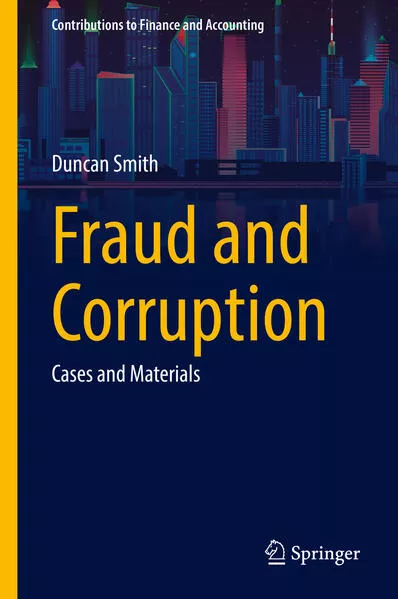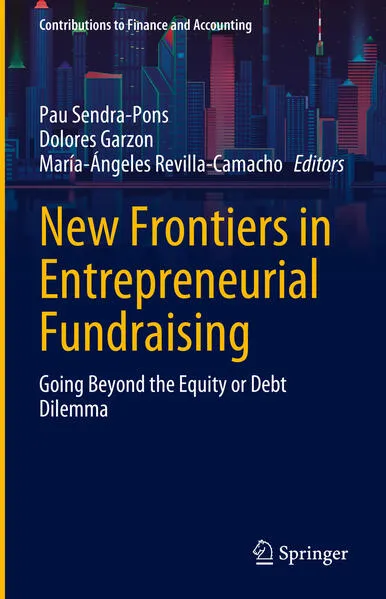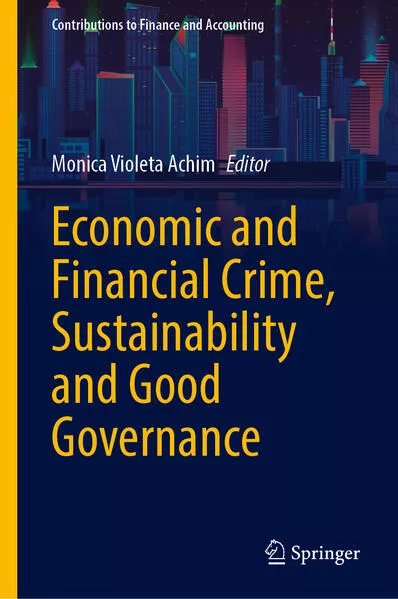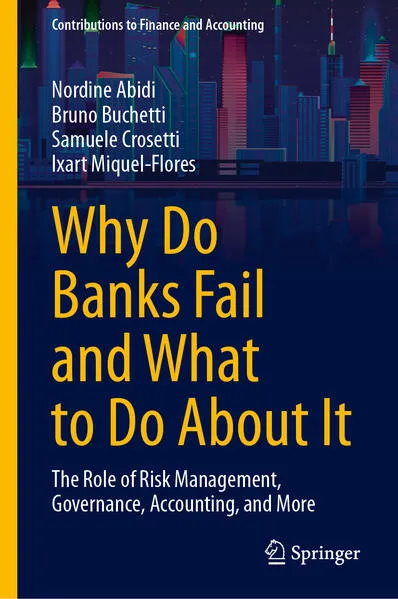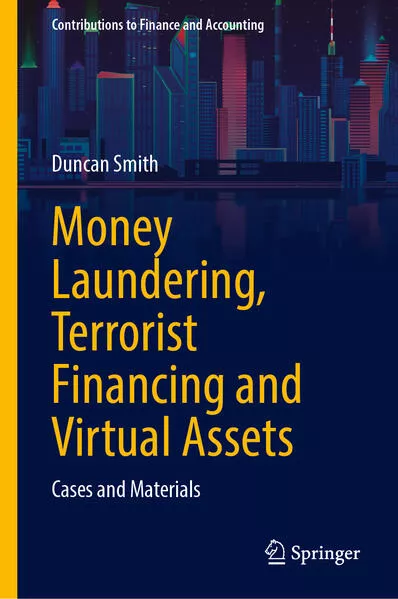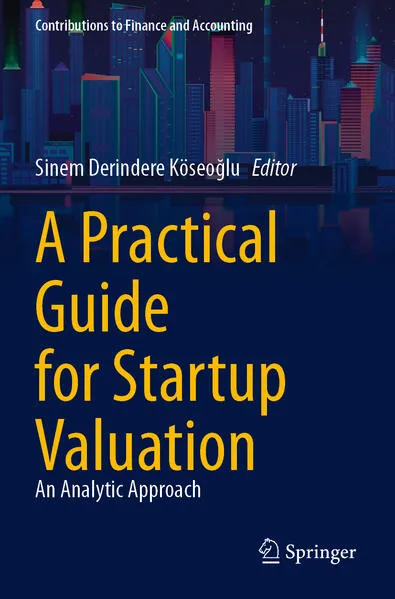Chronologie aller Bände (1 - 6)
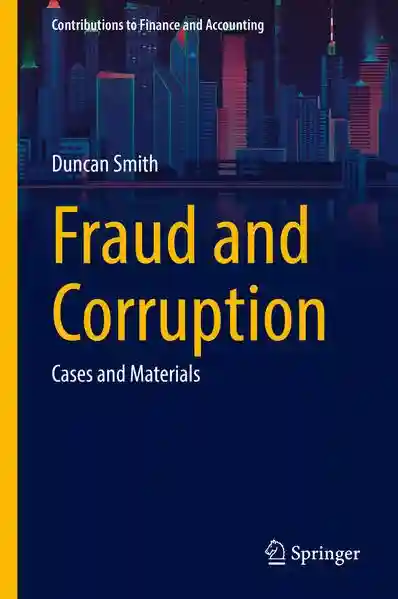
Die Reihenfolge beginnt mit dem Buch "Fraud and Corruption". Wer alle Bücher der Reihe nach lesen möchte, sollte mit diesem Band von Duncan Smith beginnen. Der zweite Teil der Reihe "Fraud and Corruption" ist am 11.10.2022 erschienen. Mit insgesamt 6 Bänden wurde die Reihe über einen Zeitraum von ungefähr 3 Jahren fortgesetzt. Der neueste Band trägt den Titel "Money Laundering, Terrorist Financing and Virtual Assets".
- Anzahl der Bewertungen für die gesamte Reihe: 5
- Ø Bewertung der Reihe: 5
- Start der Reihe: 11.10.2022
- Neueste Folge: 01.08.2025
Diese Reihenfolge enthält 5 unterschiedliche Autoren.
- Autor: Smith, Duncan
- Anzahl Bewertungen: 0
- Ø Bewertung:
- Medium: Buch
- Veröffentlicht: 12.10.2022
- Genre: Krimi
Fraud and Corruption
The book is divided into two sections. The first part presents case studies that cover several industry sectors, including not only well-known frauds like Bernie Madoff, Wells Fargo and the Enron case, but also recent events such as the Theranos/Elisabeth Holmes case.
The second section of the book includes materials on fraud and corruption such as the full text of the United Nations Convention Against Corruption, the OECD Convention on Combating Bribery of Foreign Public Officials in International Business, and the EIB’s Anti-Fraud Policy and Whistleblowing Policy. It also includes examples about current corporate anti-corruption policies from companies like Apple, Tesla and Coca Cola. For interested readers, the book offers additionally a list of films that realistically cover the topics fraud, corruption and whistleblowing.
- Autor: Sendra-Pons, Pau
- Anzahl Bewertungen: 0
- Ø Bewertung:
- Medium: Buch
- Veröffentlicht: 19.08.2023
- Genre: Sonstiges
New Frontiers in Entrepreneurial Fundraising
This book on entrepreneurial fundraising combines rigor and applicability to train current and prospective entrepreneurs in the financing processes. Through its diverse set of chapters, it reviews the latest financing tools and dynamics, the most pressing dilemmas as well as practical examples of ideal methods in the economic-financial management of startups. This book analyzes the financing methods available to entrepreneurs from a practical perspective. Expert authors also present insights on topics such as the role of incubators and accelerators in entrepreneurial fundraising; crowd-based entrepreneurial fundraising instruments; factoring, leasing and confirming for entrepreneurs; government grants, subsidies, and tax reliefs; business angels and venture capital firms; access to capital markets through initial public offerings; and financing with crypto-assets. The book concludes with a discussion on emerging issues in the entrepreneurial finance paradigm, namely transparency and legitimacy and corporate governance in startups; and, additionally, provides a practical toolkit for fundraising, with the main mistakes, how to win over investors, success stories, and resounding failures.
The editors, with extensive experience in advising entrepreneurs from a professional and academic perspective, have made a considerable effort to draw a learning roadmap that can be especially useful for entrepreneurs. Therefore, the resulting book may be of great interest to entrepreneurs and anyone interested in learning more about the financing process for entrepreneurs.- Autor: Achim, Monica Violeta
- Anzahl Bewertungen: 0
- Ø Bewertung:
- Medium: Buch
- Veröffentlicht: 19.08.2023
- Genre: Krimi
Economic and Financial Crime, Sustainability and Good Governance
This book addresses the most widespread forms of financial crime today, namely corporate fraud, corruption, tax fraud, the shadow economy, informal entrepreneurship, money laundering, international informal capital flows, cybercrimes, and cryptocurrency scams. Given the rapid rise of digitalization, especially due to the COVID-19 pandemic, there has been a huge surge in financial crime, especially in the form of cybercrime, which affects people’s financial security. Hence, the aim of this book is to stress the connected nature of financial crime and good governance, in order to achieve the most positive, sustainable development of society.
The book analyzes financial crime in the context of digitalization. On the one hand, digitalization offers clear advantages in terms of reducing classical types of fraud such as tax evasion, corruption, the shadow economy, etc. On the other hand, digitalization offers new channels for criminals to gain illegal benefits when operating indigital space, e.g. through cybercrime, bank fraud, FinTech fraud, e-commerce fraud, etc. In this context, the term “digital shadow economy” has recently emerged in the literature as an expression of the types of fraud committed in digital space.In addition, the book explores issues concerning changes in regulations for various financial crimes around the world, statistics, and ways to combat digital crimes including punitive, preventive and other measures. Special attention is paid to cybercrime and cybersecurity issues, the goal being to raise readers’ awareness of these threats.- Autor: Abidi, Nordine / Buchetti, Bruno / Crosetti, Samuele / Miquel-F
- Anzahl Bewertungen: 2
- Ø Bewertung: 5.0
- Medium: Buch
- Veröffentlicht: 22.03.2024
- Genre: Sonstiges
Why Do Banks Fail and What to Do About It
Banks play a crucial role in the global economy, yet they are vulnerable to failures that can have catastrophic effects. Key questions arise: What causes bank failures? What drives these failures? Can we avoid a banking crisis? What happens when a bank fails?
This book explores the causes, consequences, and potential prevention of banking crises. It begins by examining the fundamental roles of banks in the economic system, focusing on their intermediary functions like liquidity provision, payment management, asset transformation, and borrower oversight. The book then delves into the challenges facing the banking sector, including cyber threats, climate change, and geopolitical instabilities.
The second chapter addresses the primary risks banks face, such as liquidity, credit, market, interest rate, IT, and environmental risks, and how these contribute to banking failures. Chapter three shifts focus to financial statements, contrasting those of commercial and investment banks with non-financial companies, and discusses the impact of creative accounting in recent banking collapses.
Governance issues and their role in banking failures are the focus of chapter four, highlighting the crucial need for effective risk monitoring by bank directors. The final chapter illustrates the process of bank resolution and the evolving strategies of resolution authorities in ensuring bank stability.
Targeted at researchers, regulators, and practitioners, this book comprehensively covers the drivers of banking failures, regulatory improvement suggestions, and real-world case studies. It emphasizes the importance of banks in today’s economy, their unique risks, and the aftermath of their failure, aiming to provide a threefold contribution to understanding and managing banking crises.
- Autor: Smith, Duncan
- Anzahl Bewertungen: 0
- Ø Bewertung:
- Medium: Buch
- Veröffentlicht: 17.08.2024
- Genre: Krimi
Money Laundering, Terrorist Financing and Virtual Assets
This book presents case studies on financial crime, focusing on money laundering and terrorism finance. It includes real life examples to identify the characteristics of these crimes and discusses possible national and international measures to prevent it.
The book is divided into three sections. The first part of the book reviews international and national approaches and responses to the problems. The second part includes case summaries involving money laundering, terrorist financing or economic crime involving cryptocurrency in a range of countries. The third part of the book focuses on legal frameworks to prevent money laundering, terrorist financing and misuse of virtual assets and includes materials from the UN, OECD, FATF, MDB and EU policies to address these issues.
- Autor: Derindere Köseoğlu, Sinem
- Anzahl Bewertungen: 0
- Ø Bewertung:
- Medium: Buch
- Veröffentlicht: 27.09.2024
- Genre: Sonstiges
A Practical Guide for Startup Valuation
This book sheds new light on the most important contemporary and emerging startup valuation topics. Drawing on the first-hand professional experience of practitioners, professionals, and startup experts from various fields of finance, combined with a sound academic foundation, it offers a practical guide to startup valuation and presents applications, practical examples, and case studies of real startup ecosystems.
The book discusses pressing questions, such as: Why are startups in California are higher valued than those in New York? Or why do startups based in London receive higher valuations than those in Paris, Berlin, or Milan, even when they are based in similarly-sized economies, share the same industries, and often even have the same investors? Answering these questions, the authors present key topics, such as hierarchical and segmented approaches to startup valuation, business plans, and sensitivity analysis, many methods such as venture capital valuation, first Chicago valuation, scorecard valuation, Dave Berkus valuation, risk factor summation valuation, and discounted cash flow valuation, in addition to business valuation by data envelopment analysis and real options analysis, as well as critical conceptual issues in the valuation such as expected returns of the venture capital and price versus value concepts, among others.
The book will help angel investors, venture capitalists, institutional investors, crowd-based fractional investors, and investment fund professionals understand how to use basic and advanced analytics for a more precise valuation that helps them craft their long-term capital-raising strategy and keep their funding requests in perspective. It will also appeal to students and scholars of finance and business interested in a better understanding of startup valuation.